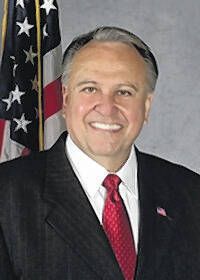Click here to subscribe today or Login.
Democrats have always stood for working class Pennsylvanians and Americans – whether they live in Philadelphia, Philipsburg or Punxsutawney.
We’ve fought for policies and programs such as Social Security, Medicare, the Americans with Disabilities Act, the GI Bill of Rights and so much more to improve the lives of ALL Americans. That includes helping our hardworking rural families and communities who need our support just as much as suburban and urban ones.
Almost a century ago, Franklin D. Roosevelt and the Democratic Party’s New Deal brought electricity to rural America – and in doing so secured rural voters as a cornerstone of the Democrats’ coalition for decades to come. Roosevelt’s electrification push was real-world, concrete proof that bold progressive government could change rural voters’ lives for the better.
Today, President Biden’s universal broadband agenda offers a modern parallel to the New Deal’s electrification miracle. The bipartisan infrastructure bill passed late last year includes $42 billion for broadband deployment, with strict language ordering that these dollars be spent first and foremost to connect those rural communities still cut off from the digital economy.
But passing a bill is one thing. Delivering real results is another matter entirely. And here again, history is a helpful guide for pointing out the sand traps that still lay ahead.
Rural communities have heard big promises about federal broadband funding in the past – but repeated failures to prioritize these resources for the communities with the greatest needs have left more than 450,000 rural Pennsylvanians still lacking access to high-speed internet.
We can’t repeat those mistakes again this time.
As Pennsylvanians, our state’s economic future hinges on making sure every community can fully participate and share in the opportunities of the digital economy, from online job training to telehealth to connected agriculture. That’s why Pennsylvania House Democrats were disappointed when their $200 million plan to expand broadband access was left out of the 2021-22 budget passed by the Republican-controlled legislature.
Thankfully, we were able to come together last fall to create the Pennsylvania Broadband Development Authority, an 11-person group tasked with managing at least $100 million in funds from the Infrastructure Investment and Jobs Act passed by Congress last year. Success or failure of this new effort will hinge on decisions made in Harrisburg, as the Broadband Development Authority will decide where and how this federal funding gets invested across the state.
Three guiding principles can make sure we make the most of this opportunity.
First, we need to stick to the letter and spirit of the infrastructure bill’s clear, bipartisan directive for focus on unserved communities.
As eager as some ISPs might be to use these funds on projects in more populated and already-wired communities, that’s not where our help is most urgently needed. Similarly, while some city governments may want to use these funds for municipal broadband projects, building duplicative infrastructure in areas that already have fast networks would just divert time and resources from the unserved areas.
Second, we need a level playing field and an open, competitive process to help stretch each tax dollar as far as possible. Funding should go to whichever providers can wire the most rural homes with the highest-quality service at the lowest cost. We can’t let political patronage, insider lobbying, or ideological demands pull us off course.
And third, we need transparency every step of the way so that elected officials can hold the winning contractors accountable for keeping their promises – and voters can hold officials accountable for keeping ours.
Delivering high-speed internet to every corner of Pennsylvania is our best chance in years to invest in our rural communities and show that Democrats can deliver on our promise to improve their lives and expand opportunities to thrive.
Eddie Day Pashinski represents House District 121 in the Pennsylvania House of Representatives and serves as the Democratic Chair of the House Agriculture & Rural Affairs Committee.





